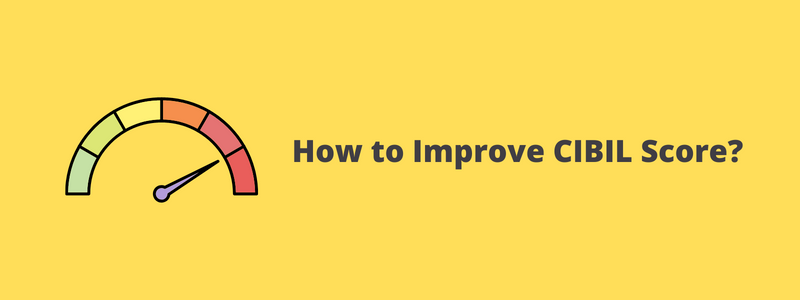One of the four credit bureaus in India that generates your credit score is CIBIL. It reflects your credit history. It can be used by lending institutions to check your creditworthiness when you apply for loans or other credit-based financial products. Having a high credit score benefits you. You might acquire better and speedier loans if your credit score is high. A low CIBIL score, however, can be worrisome for those who need money right away because it may have a negative impact on their ability to borrow.
CIBIL is one of the top credit rating companies in India. Banks and other financial institutions use the CIBIL credit score as a benchmark when assessing a borrower’s creditworthiness. A 700 or higher is regarded as excellent. Anything less than that will make it difficult for you to obtain loans promptly.
Let us first understand how CIBIL is usually generated.
Calculating CIBIL Score
Several factors are considered when calculating your CIBIL score that include application for credit, the debt amount, payment history, length of the payment history, and more. It is important to keep a good score since all factors have different weightage.
A score of 300 to 549 is considered as poor, between 550 to 700 is seen as average. A high credit score can be advantageous in getting faster loans. Changing a CIBIL score cannot happen overnight but making minor changes will go a long way.
How to Increase your CIBIL Score?
1. Paying dues on time
Start by getting organised and be disciplined with your credit. Your credit score may be significantly impacted by how you handle unpaid debt. In addition to making you pay a penalty for late EMI payments, this also hurts your credit rating. Therefore, if you want to raise your CIBIL score, pay your bills on time and build up a high score. Use a service that enables automated bill payment to avoid worrying about missing due dates.
2. Lower credit utilisation ratio
It is important to maintain a good credit utilisation ratio, an individual can get to this by using less than 30% of the available limit.
3. Increase your credit card limit
You can ask for a credit limit increase by getting in touch with your credit card provider. You can better manage your credit-to-debt ratio without harming your credit score by raising your credit limit.
4. Do not settle loans or credit cards
Settlements for credit cards or loans are bad for a person’s CIBIL rating. In order to settle a loan or credit card debt, the borrower typically goes to their bank and requests a deal, ideally one that will let them pay off the debt for less than what is really owed. Banks occasionally grant such requests, but the settlement agreement that was executed eventually leaves a record on the credit report, which ultimately has a negative impact on the applicant’s credit score or willingness to receive new credit from a bank.
5. Pay your loans
Make it a priority to start being on time with your payments if there are any loans for which you have been paying late. You can ask your bank to assist you restructure your debt if you are having trouble making ends meet with your existing EMI payments.
6. Only loan what you can pay
Your credit score is likely to suffer if you submit too many loan applications or consistently use your credit card close to its limit because these actions show that you are credit-hungry. The best course of action is to avoid borrowing money unless it is absolutely required and to avoid exceeding your credit card limitations.
7. Having the right kind of debt
Debt is frequently necessary to increase your CIBIL score. However, the goal is to borrow the appropriate amount of money, manage it wisely, and repay it on time.
When taking out a loan, one could choose a lengthier term to keep their EMI low. Additionally, you could raise your credit limit. This does not imply that you will increase your spending. The key to raising your credit score is to have a lot more credit and keep your utilisation rate low.
8. Watch out for the frequency of your applications
The fact that every time you apply for credit, the bank will request your credit report from CIBIL and the inquiry will be noted in the report is another reason why you should refrain from applying for loans and credit cards too frequently. After each request for your report, the bank’s investigation could also lower your score. This means that even when you have every intention and ability to repay the loan or credit card on time, you have two disadvantages: first, you exhibit credit-hungry behaviour, and second, your credit score declines.
Conclusion
A healthy CIBIL score is always necessary to get quick and competitive loans. Your complete history of borrowing is reflected in your CIBIL score. As a result, if you’ve previously missed payments on a loan, simply paying off a few credit card bills on time won’t significantly improve your score. You must commit yourself fully to a habit of making payments on time, each and every time, taking out more secured loans than unsecured loans, and never skipping a credit card payment. As you continue to pay your debts on time, your credit score will progressively increase.
